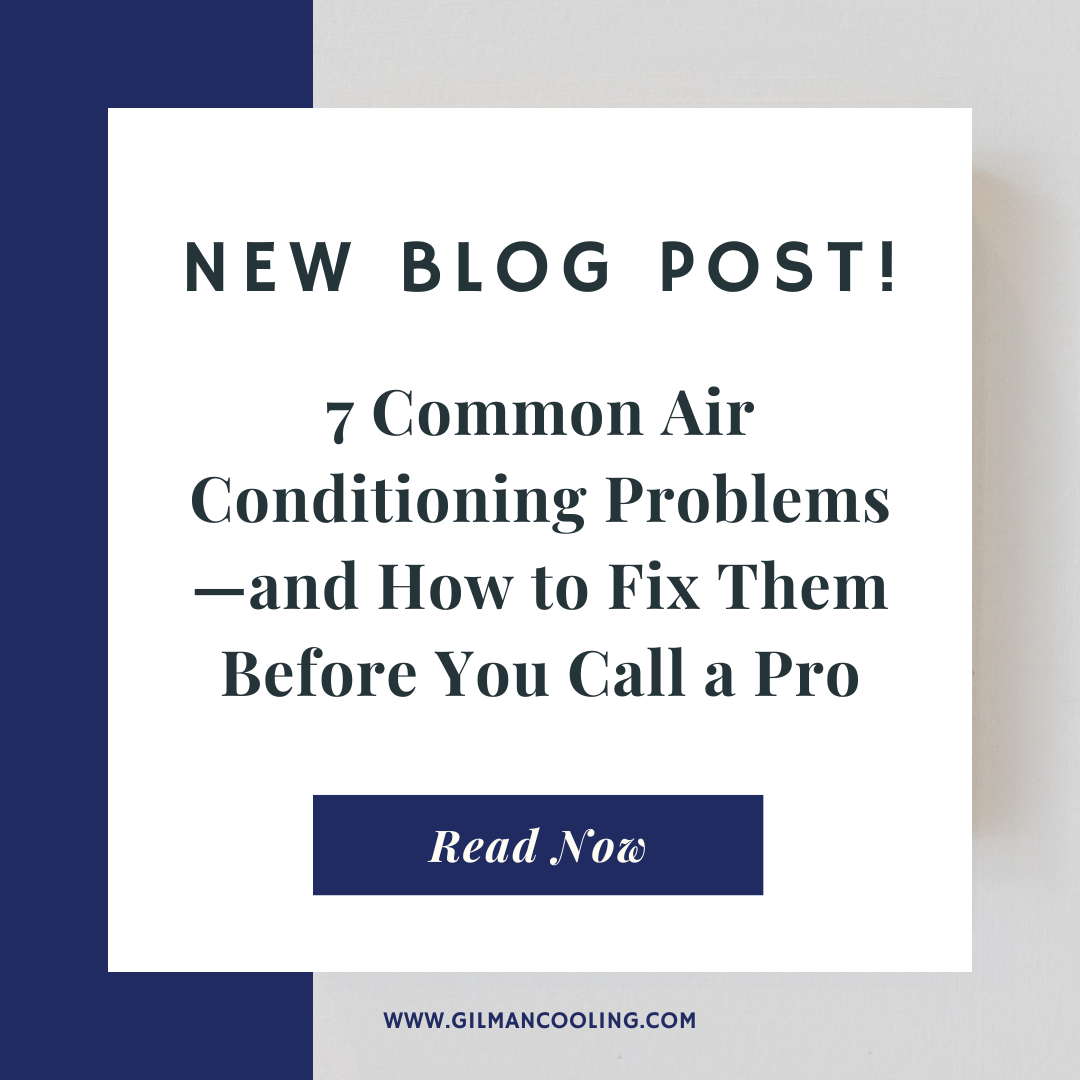In today’s world, air conditioning isn’t a luxury—it’s practically a necessity. In fact, according to the Energy Information Association, 87% of U.S. homes are equipped with AC systems, and 75% of those homes have central air units. So, if you’re in a home that’s not cooled by AC, you’re in the minority.
Whether it’s the sweltering heat of a Southwest Florida summer or the chilly, unpredictable days of winter, a functioning AC is essential for comfort. But what happens when that trusty air conditioner breaks down right when you need it most? Before you panic and dial up an HVAC professional, let’s walk through some common AC problems you might be able to fix yourself.
1. Low Refrigerant (Freon) Levels: The Lifeblood of Your AC
Refrigerant is basically the “blood” of your air conditioner—it absorbs the heat and humidity from your home and keeps you cool. So, if your refrigerant levels are low, your AC just can’t do its job properly.
Signs you’ve got a refrigerant problem:
- You’re feeling warm air blowing through the vents (uh-oh).
- Ice or frost forms on your AC unit.
- You hear strange hissing or bubbling noises.
If this sounds like your situation, it’s time to call a pro to check and recharge the refrigerant. DIY refrigerant recharging is tricky and best left to an expert.
2. Dirty Condenser Coils: The Hidden Culprit
Your AC’s condenser coils are crucial for releasing the heat that the unit pulls from your indoor air. Over time, these coils can get clogged with dirt, leaves, or even grime from nearby construction. When that happens, your AC’s cooling efficiency drops—leading to higher energy bills and a less-than-pleasant home environment.
How to prevent this:
- Regularly clean around the unit and schedule professional maintenance. A technician will ensure the coils are clean and free from debris. (Trust us, it’s worth it!)
3. Fan Motor Issues: When the Breeze Stops
Your AC fan is what circulates the cool air throughout your home. If the fan motor goes bad, your system may still hum to life, but no cool air will come out.
Symptoms of a failing fan motor:
- You hear the compressor running, but no air is coming through the vents.
- The fan won’t start at all.
If this happens, you’ll need a professional to replace the fan motor before the entire system shuts down.
4. Leaky Air Ducts: Hot Air’s Sneaky Escape Route
The air ducts are responsible for carrying the cooled (or heated) air through your home. But if there’s a hole or leak in your ductwork, it’s like letting the cool air escape into the walls. This makes your AC work harder to maintain the temperature and can hike up your energy bills.
What to do:
- Have an HVAC technician inspect your ducts for leaks. They can seal them up, so your AC doesn’t have to overwork itself.
5. Clogged AC Drain Line: The Silent Trouble-Maker
A clogged drain line can cause your AC to stop draining moisture properly, which can lead to water damage and mold buildup. Over time, algae and dirt can clog up the drain line, making your system less effective.
Look for these signs:
- Water pooling around the AC unit.
- A musty smell or visible mold growth near the unit.
If your unit has a clog, a professional can clear the line and ensure everything’s working smoothly. Many newer models even have a built-in sensor to alert you when the line is clogged, so keep an eye on that!
6. Frozen Evaporator Coils: When Things Get Too Cold
If the coils inside your air handler freeze, your AC will struggle to cool the air effectively. In some cases, frozen coils can even lead to serious damage like a burned-out compressor.
Signs your coils are frozen:
- Ice forming around the outdoor refrigerant line.
- Moisture or condensation around your air handler.
- Visible ice or frost on the evaporator coils.
If you spot any of these signs, turn off your AC immediately to prevent further damage. A technician will need to defrost the coils and diagnose the underlying issue.
7. Old Thermostat: It’s Time for an Upgrade
If you’re still using an outdated, manual thermostat, you could be missing out on a lot of efficiency—and comfort. Old thermostats can be inaccurate, prone to malfunctions, and just plain inefficient compared to modern, programmable models.
Why upgrade?
- Newer models allow you to set cooling schedules, saving energy when you’re not home.
- They’re more accurate, so your home stays at the right temperature.
If your thermostat is over a decade old, it might be time to replace it.
Regular Maintenance: The Key to Avoiding Most Problems
Many of the issues above can be prevented with regular maintenance. Schedule annual or bi-annual service appointments with an HVAC professional to keep everything in top shape.
Need help with your AC? Call Gilman Cooling & Heating!
If you’re experiencing any of these common issues, don’t wait for things to get worse. Reach out to the experts at Gilman Cooling & Heating, your trusted HVAC team in Southwest Florida. We offer expert service throughout Lee, Collier, and Charlotte Counties, from installations to repairs and routine maintenance. Our techs are trained to get your AC running smoothly—so you can enjoy the comfort of a perfectly cool home.
Call us today at (239) 574-7780 or visit our website at gilmancooling.com.








